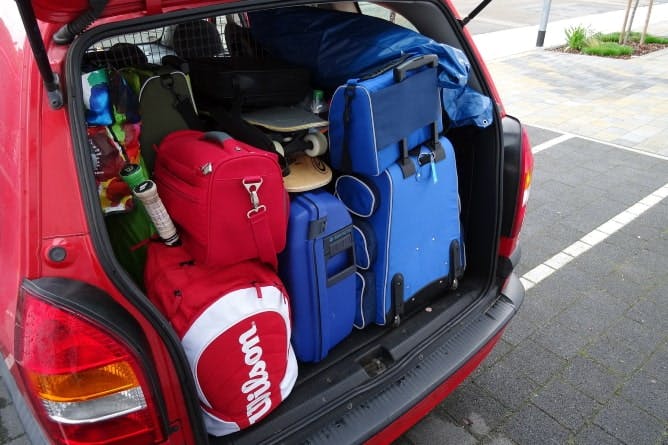
Whether heading out on a long journey or driving to work, no one ever expects to break down or agonise over long delays (well, some of us do!). Unfortunately, these things do happen—and, all too often, drivers are severely ill-equipped to deal with the situation. As such, it's a good idea to plan for the worst by keeping your car stocked with essential items.
You might not ever need to use them, but it's nice to know that they're there. We're going to take a look at essential items to keep in your car below. We've divided it into emergency items, winter-specific items and other assorted items.
Emergencies, car repair and maintenance
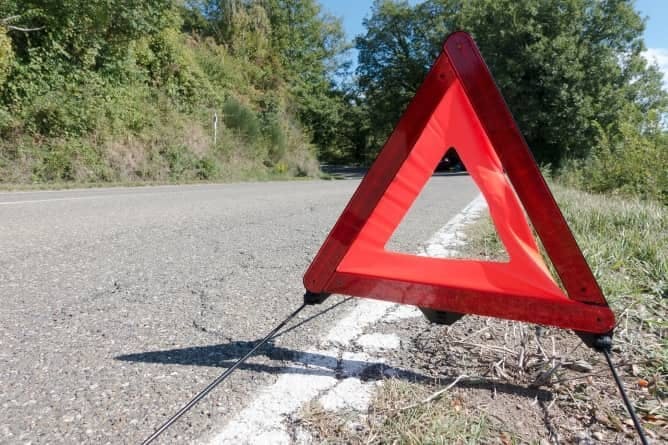
Whether you've got a tyre puncture, your car has broken down suddenly or you're stuck on the motorway due to a pile-up, you can avoid additional stress by packing the right items. Let's take a look at some emergency and maintenance items that you might want to pack in your car…
1. Details for breakdown service
If you do break down, you can save yourself the hassle of trawling through your phone—and wasting data—by keeping a hard copy of information regarding your breakdown provider in your car. Alternatively, make sure you've got your provider's number saved on your phone. By doing so, you'll be able to call for help ASAP.
Some providers make this scenario even easier for customers. RAC members, for example, each have a membership card that lists the RAC's emergency number and their individual membership ID number. Similarly, the AA has its own app which enables users to find their membership card quickly.
Should I keep documents in my car?
Although it might seem useful to keep important documents in your car—like insurance information or DVLA registration—we would advise you not to. If your car is stolen, a thief could use the information in your documents. Instead, keep your vehicle documentation in a safe place at home.
It's unlikely that you'll encounter a situation in which you'll need these documents to hand immediately. If you are stopped by the police, you must be able to show:
- Your driving licence
- A valid insurance certificate
- A valid MOT certificate (if your vehicle needs one)
If you don't have these documents on you at the time, however, you'll have 7 days to take them to a local police station.
2. Car manual
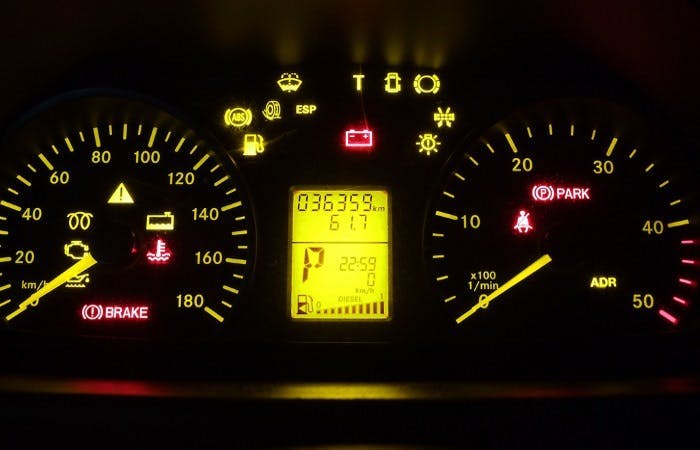
Believe it or not, some drivers spend years in the same car only to be utterly stumped when a warning light suddenly appears. If your car breaks down, you need to be able to figure out what the problem is. Your car's user manual contains all the information you could possibly need to know—from changing bulbs to topping up fluids to the correct tyre pressure.
It might be a boring read, but it's certainly worthwhile flicking through it when you have the time—you should get to know your car properly!
3. Reflective triangles and a high-visibility jacket
If you're unfortunate enough to break down, you need to use reflective triangles in order to alert other road users. Similarly, wearing a high-visibility jacket will ensure that you're seen by other road users—this is especially vital if you're walking to find the emergency telephone on the hard shoulder.
You might remember this from your hazard perception test. If it's slipped your mind, however, this is what the Highway Code has to say on the matter:
“Put a warning triangle on the road at least 45 metres behind your broken-down vehicle on the same side of the road, or use other permitted warning devices if you have them. Always take great care when placing or retrieving them, but never use them on motorways”.
“Help other road users see you by wearing light-coloured clothing or fluorescent clothing in daylight and reflective clothing at night or in poor visibility.”
4. Spare tyre and car jack
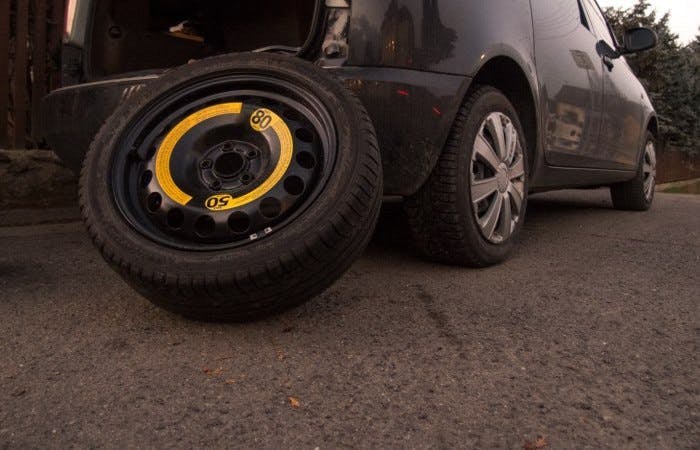
You'd be surprised by how many breakdowns are caused by tyre punctures. That's why it's a good idea to keep a spare tyre with you. Most new cars come with one, but if yours doesn't have one, it's definitely worth making the investment. If you're going to go to the effort of carrying one, however you should also pack a car jack and wrench—otherwise, you won't be able to change it!
5. Food and water
Food and water are essential in any emergency on the road, whether you've broken down or you're sitting through long delays. As such, you should keep your car stocked with non-perishables like cereal bars, dried fruit, crisps and so on. If you tend to drive with passengers, make sure you pack extra. Not only will this keep your energy up whilst waiting for traffic to move or a recovery van, it will also limit the chances of you getting hangry!
Similarly, you should keep a sealed bottle of water in your car at all times. Not only is this useful for keeping you hydrated, it's also handy for topping up your radiator or the windscreen-washer bottle.
6. Jump leads/portable battery pack
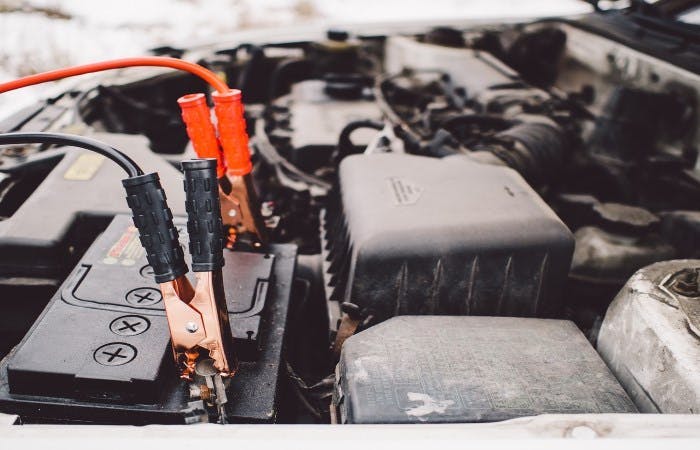
Another common reason for breakdowns on the road is a flat battery—particularly in the colder weather, when car batteries tend to be more temperamental. If you buy a set of jump leads, you'll be able to get a jump start from another driver and be on your merry way in no time.
Of course, sometimes good Samaritans are few and far between. If you want to avoid waiting around for help, pack a portable battery pack and you'll be back up and running in no time.
7. Mobile phone charger & torch
No matter how often you charge your mobile, there's no telling how long you might be stuck waiting for recovery or traffic to clear up. The last thing you need is a dead phone when you need to call a recovery service, so keep a portable phone charger in your car at all times.
Additionally, you should purchase a wind-up torch for your car. If you have to check under the hood of your car in the dark, you need to be able to see what's going on. Regardless of how handy your phone's torch function might be, you never know when your battery might die (especially if you didn't pack your charger!).
8. First aid kit
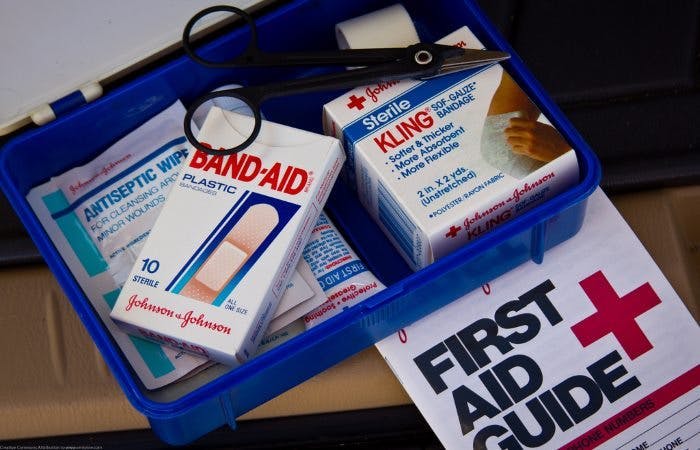
If you end up involved in an accident, a first aid kit will help you treat minor wounds and minimise damage whilst waiting for an ambulance. Your kit should contain all the basics you might need to patch up in an emergency, e.g., bandages, plasters, pain relief and so on. You might also opt to pack personal medication or prescriptions, just in case.
Not sure how to administer first aid? The Highway Code has in-depth information regarding first aid on the road. Alternatively, you might want to look at taking a first aid course with groups like the British Red Cross.
9. Extra clothing
When driving for a long period of time, many drivers tend to avoid wearing heavy clothing. If you end up stuck in your car for hours on end, or stood outside on the hard shoulder, you don't want to be caught out in adverse conditions. As such, you should keep extra clothing in your boot, e.g., a thick jacket, hat, scarf, gloves and so on.
It might also be worthwhile investing in an emergency survival blanket that will keep you warm, windproof and waterproof.
10. Empty fuel can
Not all breakdowns are due to dead car batteries or punctured tyres. Sometimes, the cause is as simple as running out of fuel. Some people recommend carrying spare fuel, so that you can quickly top up if you end up running out. We recommend that you don't—it can increase the risk of fire in an accident. Instead, carry an empty fuel can so that you have the option of being able to head over to the nearest petrol station to fill up.
Winter essentials to keep in your car
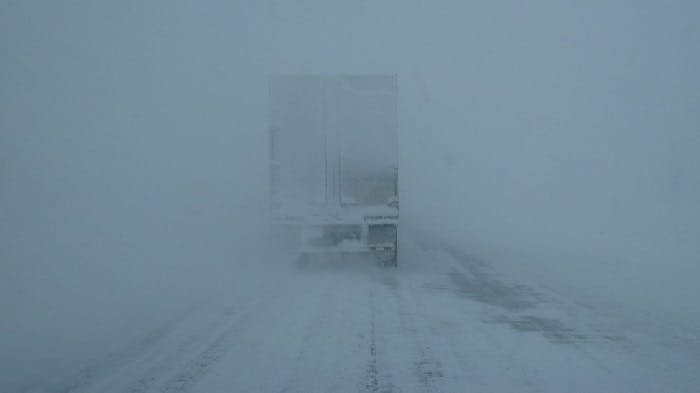
Winter is a tumultuous season that brings about a sense of heavy dread amongst even the most experienced of drivers—and for good reason! With the chance of heavy snow, plummeting temperatures and icy roads, the likelihood of breaking down or long delays increases. You can prepare for the worst, however, by adding some winter essentials to your emergency kit.
- Extra clothing. Although we mentioned this in the emergency essentials, it's even more important during winter. Whether you're delayed or stuck on the hard shoulder until recovery, it's absolutely vital that you stay warm during adverse weather. So, take care to pack yourself a thick coat, scarf and gloves.
- Boots. If you need to get out of your car while it's snowing or there's ice on the roads—to use the emergency telephone or wait for help—you need to make sure your shoes have a good grip. If you tend to avoid wearing sensible shoes most days, be sure to pack a sturdy pair.
- A torch. Although important in most emergencies, torches are even more vital in winter. With the days getting shorter, natural light is limited. You don't want to be stuck on the road in the dark. Remember, if your torch is battery powered, pack spare batteries.
- Ice scraper and de-icer. You're legally required to ensure your front and rear windscreens are clear of snow and ice before driving. And, if conditions are particularly adverse, and you're leaving your vehicle parked, you should keep them with you to clear your windscreens before you set off again.
- A shovel. This is only really relevant for road users who are used to having to deal with heavy snow in winter. In these types of conditions, you might have to quite literally dig yourself out of a problem.
- Snow chains. It can be difficult to gain traction on whilst driving on rural roads during winter, which is why some road users opt to use snow chains. By doing so, they can get maximum traction when driving through snow and ice.
Some drivers won't need all of the above items. It depends entirely on how severe winter can be in your local area. Plus, as the weather improves, you can put your winter essentials away until next time!
Other assorted items
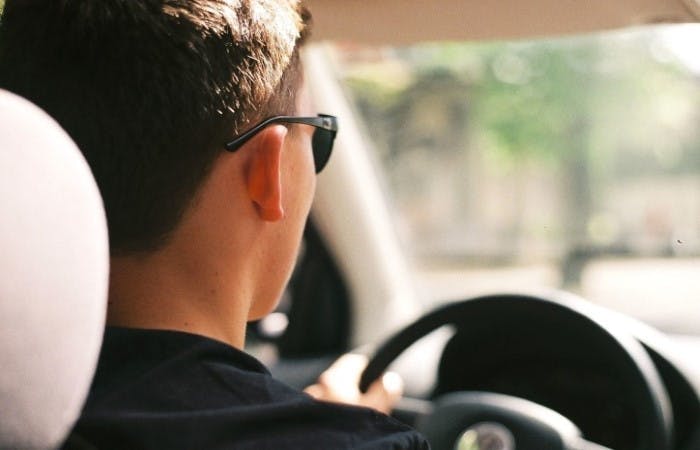
There's just no end to how many useful items you can pack in your car! The following list is filled with items that aren't necessarily essential, but might still be worth thinking about.
- Hands-free kit. As you know, you can't legally use your phone whilst driving. If you often find yourself missing important calls, or worry about needing to use your phone, you should look into a purchasing hands-free kit. Bear in mind that you'll have to set it all up before you start driving.
- A-Z map. If you find yourself on frequent long journeys, you might want to pack an A-Z map just in case. After all, you never know when your trusty sat nav might fail. And if there aren't any locals around to ask, a map is a lifesaver.
- Loose change. How many times have you been caught out on unexpected tolls or car parking? Avoid any hassle by keeping spare change in your car.
- Spare shoes. If you like to wear fancy shoes for work or going out, you should make sure you've got a spare pair of flats in your car. Sometimes we don't realise how much of an impact wearing thick-soled shoes or heels can have on our driving.
- Sunglasses. If you thought sunglasses were only vital in summer, you'd be very wrong. The winter sun is lower in the sky, so it's often in your line of sight whilst driving. Make sure you pack your trusty pair of sunnies to avoid being blinded whilst driving!
- A blanket. Speaking of bad weather, how many times have you been caught out by unexpected rain? If you get soaked, a blanket is great for drying off and/or covering your car seat. It's also great for an impromptu picnic if you're heading out on a road trip!
Things to remember...
So, we've pretty much covered all bases when it comes to essential items to keep in your car. While it might be tempting to pack your car with everything we've mentioned, however, you need to be realistic. The size of your vehicle will limit how much you can store, so you'll have to prioritise.
You might find it useful to ask other drivers what they keep in their car. Make sure to ask drivers who've been driving longer—they're more likely to have experienced breakdowns and delays, so they'll know what should take priority.
Subscribe for driving advice, offers & more
We'd love to let you know about our courses, news and offers via email. You may unsubscribe at any time.
Star Genie Limited trading as PassMeFast. Company number 10093359
Copyright © 2024 owned by Star Genie Limited
PassMeFast, Blue Tower, MediaCityUK, Salford, M50 2ST

